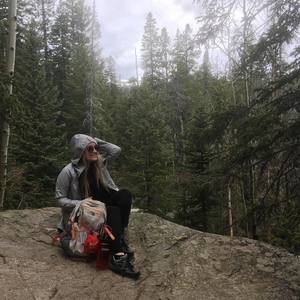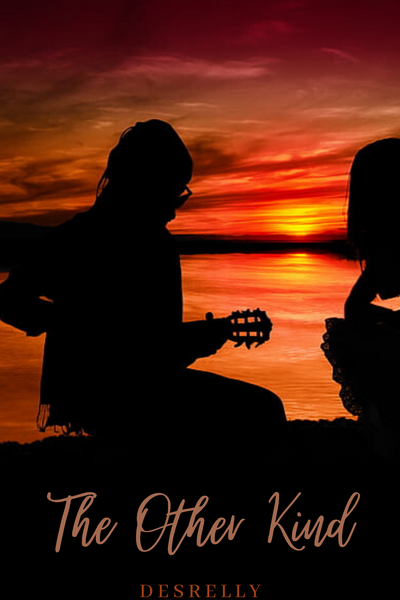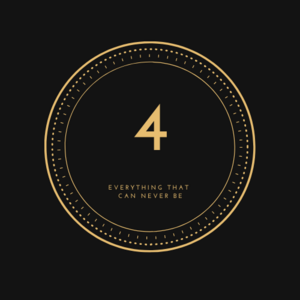I lied to Saxa.
I don't regret this. Lying is an important skill.
People say that lying is bad, but this is because we live in a world that idolizes intelligence, education, and therefore we idolize the idea of having knowledge. We crave it, hunt it, spend our days just trying to occupy our thoughts and feed them with new information, collecting facts like coins in a vending machine.
We're proud of the knowledge we collect, and we use this knowledge as proof that we are better than others.
It starts as children. Before we're even old enough to tie our shoes, we're sitting on our kitchen floors, dragging toy trucks over our feet, and above us, we listen as our mothers tell the friend sitting across from them at the dining table how talented we are.
"James can finish a ten-piece puzzle in five minutes!"
"Oh, how brilliant! But you know, my baby can already read ten words. She's really ahead of her class."
"Wow! That is great! But did you know that Jamey knows all of Oregon's most popular species of trees?"
"But did you know –"
This game continues, this back and forth and back again debate, until you've overheard it so many times that it plays like a song in your head. Slowly and effortlessly, it's been memorized, and whenever you close your eyes, the thoughts you hear are simply little excerpts of its chorus.
It's no wonder that you've started to adopt this into yourself by the age of eight, ten, thirteen... Everyone around you is now valued based on what they know. A friendship is based on what information the other can provide, what gossip they can share, what scandals they know about before anyone else.
Me, I watched, as gradually my friends and neighbors with whom I had grown up became swallowed in this. They gladly accepted their roles in these games: the quarterback, the defensive guard, the cheerleader. "Kelly has her shirt on backwards today," two points. "The answers to Mrs. Patters' test are B, A, C, A, B, D..." seven points.
And one day, when we become older and more complicated people, our worth will be measured by how many degrees we hold or how savvy we are with stocks or marketing or scientific lingo. We give power to whoever is deemed the smartest, the most brilliant, the most knowledgeable.
The thought that that knowledge we possess could somehow be false crushes us, like someone telling you that you aren't as intelligent as you thought you were, that you don't know as much as you thought you did. It's the only knowledge we don't want to know: we've wasted time believing something that isn't true.
Thus, the world has developed this sort of defense mechanism, a means of protection against the lie. Instead of accepting that we don't or can't or shouldn't know everything, we villainize the liar, shifting the blame to someone or something outside of us, and we find comfort in the idea that if it's a moral crime to share false information, there is no indignity for those who fall to believe it.
I lied to Saxa, and this, because I promised my mother that I would never speak of that day at the beach again. I don't know why I even thought to tell Saxa of that day in the first place. I guess it is just that I was unprepared, and so I didn't have time to think of another memory.
I'm not comfortable speaking of the past, in fact. The past, it has always been innately personal to me. Not something that is mentioned out loud, but rather something that is quietly understood. A series of events, a collection of stories, little films that live inside a mind, endlessly accessible and endlessly playing on their loops, projected side by side onto the walls of the vault in which they are kept. Yet, no one, save the owner of that mind, is allowed inside.
Saxa asked me to tell a story from my past. What was I supposed to talk about? I started speaking before I even understood what I was saying, and once the story was started, I couldn't take it back. I needed a way to stop it. I lied. I told her that I didn't remember what happened after I fell from the rock, and yet, it's the most vivid memory that I have.
***
The beginning of the story goes as I told it: I climbed up the rock, heard a woman yelling at me, got startled, and slipped off the edge. But as I hit the shards of stone implanted at the base of the cliff, I didn't go unconscious. No, I was completely awake – one could intensely even, – and the feeling of the earth as I crashed into it implanted itself so seamlessly in my memories, that just the thought of it is enough for me to make the scars that are still scattered down my back burn with real pain.
Before the crash, my life was simple. I had felt pain before: from sharp cuts on the tips of my fingers after running them across too thin paper; from edges of tables which extended just slightly too long, which I hadn't seen before running past them, my head forcefully thumping into them; from the occasional slap on the wrist from one of my parents when I was doing something I shouldn't. These pains, I thought were the worst pains that existed. Never had a known what true pains looked like. They had always been there, strangers living and walking amongst me, but until they touched me, on this unnaturally warm day in October, I never recognized them.
I hit the rocks backside first, belly towards the sky, and my body was split in two: the half of me that was in the water and the half of me that was out of it.
The back side of me – loin, shoulder blades, nape of neck – the parts of me in the water, they became consumed in hurt. The caps of the rocks penetrated my skin, latching onto me by way of a hundred tiny stab wounds, and I felt a sharp pain in the left inner wall of my chest that worsened with each breath. There was a pounding in the back of my head. If I dared to move, the rocks seemed to grab onto me, to pull me deeper into their embrace, piercing their nails mindfully into the places they knew would hurt me most. The pain, it pulsated, travelling from my chest to my limbs to the tips of my fingers and my toes. Its rhythm, familiar in the way that it matched the beating of my heart. I could feel the blood as it leaked from my open wounds, the salt from the sea aggravating the skin tissue that lay beneath.
Above the surface, though, for the other side of me, everything was fine.
There was no pain; instead, a ghostly calm began to rush over me. The sounds of the ocean as it gently rushed past my ears muffled the panicked calls of beachgoers, who I saw swiftly gathering at the base of the shoreline. Like the rhythmic sound of a mother's breathing, it peacefully rocked me to sleep, and for a few short instants, all I heard was white noise and all I saw was light. The entirety of the sun shone for me. It touched me, enveloped me, held me in its warm hands, and carried to me a promise that it would heal all that had been broken.
I relished this. I didn't care about the parts of me buried under the water's surface. I closed my eyes mindfully, accepting the sweet hypnosis of the ocean and the sky. A harmony of nature, a closeness to something bigger than me.
Before long, this had passed. The hurried steps of the people as they arrived inadvertently kicked splashes of the salty water over my eyes, and the soft sounds of the ocean were replaced with the crash of these splashes as they fell to the rocks surrounding me.
"Oh my god!" someone screamed. "He's not moving!"
"Where's his mother?" I heard next. "Someone, find his mother!"
Seconds later, I saw her. She invaded the top left corner of my vision like a dark angel, coming to save me and condemn me all at once. On her hip, the babe Joy who, still not understanding what was happening, began to cry from the flurry of sounds that amplified across the scene.
My mother made an audible gasp, and the free hand that she had came weakly to rest on her lips, fingers curling around her chin and cheeks. She lingered in this position like a statue. She was in this moment, although not entirely unlike her other moments, undeniably beautiful. I imagined, if she had been a statue, she would be one of great renown.
Carved by Michelangelo himself, people would gather from all over the world to see Mother in distress with child. They would analyze her: admiring the way her eyes just ever so slightly squinted, in protection no doubt from the blinding sun; the way her left arm came so strongly to wrap around the little girl she held; the way she mindfully pressed that little girl's head into her shoulder to prevent her from seeing the scene which played out in front of them.
"I wonder what she is looking at..." they would think. "What sort of atrocity must she want to protect this girl from witnessing?"
She did not stay here forever, of course, as June Atwood is not in fact a statue. With her next move, she came to kneel beside me, touching her forehead to mine and cradling my head into her knees. She could not have known how much this hurt me. As she pulled my body closer to hers, the tips of the rocks that pierced my skin began to tug on the wounds they had made. The pointed pain in my chest radiated more deeply.
"Someone, call an ambulance!" my mother cried, noise ringing through my ears.
"M-mom." I wanted to tell her that she was hurting me. I began my speech as best I could with whatever strength I could find.
"No, no, sweetie," my mother replied. "Don't speak. Help is on the way." She caressed my face, pushing back tufts of saltwater-soaked hair that stuck together in clumps. Without moving my head, I curled my eyes in her direction.
"It hurts," I managed to say, but I don't think it was heard.
"Where is the ambulance!"
"It's coming," someone said. The voice was farther away than I had expected. I realized that everyone must have kept their distance from me, only advancing close enough to see the action without themselves traversing the jagged rocks with their likely bare feet.
My mother pushed her hand into my chest. It became increasingly harder to breathe. "You're going to be fine, baby."
"Y-you're h-hur..."
She continued her shushing. "Shh, shhh, it's going to be fine."











Comments (0)
See all